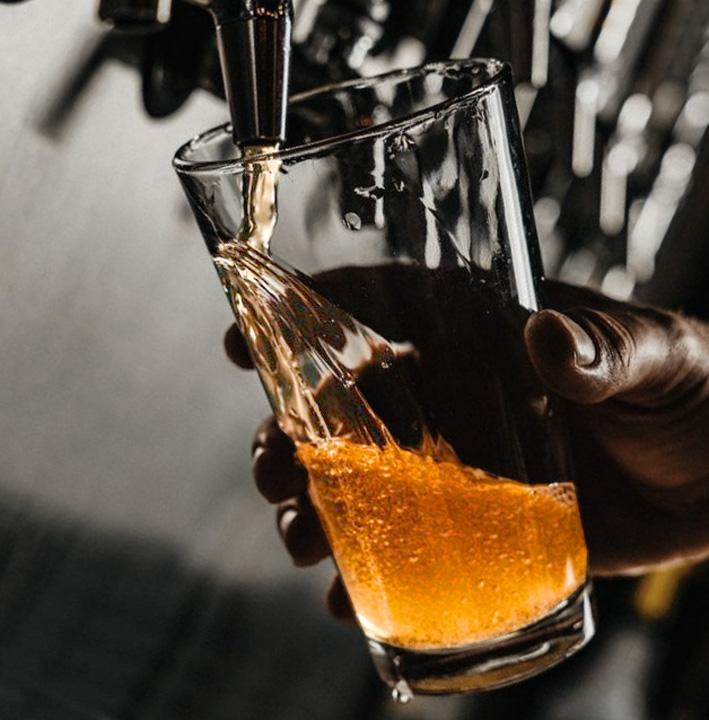The Federal government this week handed down its latest budget, hinting at a troubled global outlook and hedging Australia’s position, and hospitality has given the strategies a thumbs-down.
A core focus of the budget was the forecast for inflation, which has fallen to less than half of the 7.8 per cent peak of late 2022, but treasury is aiming for it to be back in the Reserve Bank’s two to three per cent target range by mid-2025.
This budget foretells a somewhat bleak picture of the direction of the global economy, expected to see the longest period of depleted economic growth since the early 90s, which will have flow-on effects on the Australian economy.
The past two years of high interest rates and inflation have hurt many Australians; data shows working people dramatically reduced spending during the first quarter of 2024.
Addressing this, the budget has included measures to reduce the cost of medicine and energy and bring down rents – but this brings with it the dilemma of giving people money that they might spend elsewhere and potentially add to inflation.
This balancing act by the treasury can be achieved because Treasurer Jim Chalmers believes things are set to turn, and the economy is projected to slow as these measures come into effect.
Research by the Reserve Bank suggests people probably won’t spend all money they save, finding it more likely with payments that have a long-term effect on household incomes, such as rent assistance, while temporary payments, such as relief on energy bills, are more often added to savings.
It’s noted that this spending is typically higher in households with lower incomes and with less cash in the bank.
In this context, the budget has again refused to freeze the excise on beer and whiskey, meaning drinkers in venues will contribute a billion dollars to the budget over the next four years.
Many working-class people are struggling with cost-of-living pressures, and while they are already amongst the highest taxed drinkers in the world they will see further tax increases on their beverages in August, and again in February 2025.
The revenue from the liquor excise will grow from $8.1 billion in 2024/25 to $9.35 billion in 2027/28.
The Australian Hotels Association notes that despite both sides of politics talking about lower taxes, these hidden taxes will put up the price of beer and spirits yet again.
“They are addicted to the revenue and the punter in the main bar is paying for it again and again,” declares AHA National CEO Stephen Ferguson.
“This hidden fun tax hits everyone who enjoys a beer or a whiskey with their mates.”
The Independent Brewers Association, which represents Australia’s 600+ independent brewers, was similarly scathing.
Boutique brewers are supporters of Aussie farmers, hubs of innovation, and creators of jobs. The IBA suggests that while beer excise may not appear to be a significant issue, it greatly contributes to the cost disparity for smaller breweries.
A recent report by the House of Representatives’ Standing Committee on Economics, titled “Better Competition, Better Prices” detailed results from the inquiry into promoting economic dynamism and competition. It found “evidence of high margins in the beer brewing sector (by Lion and CUB) which may indicate excessive market power”.
The IBA is calling for an inquiry into this dynamic, and the big brewers’ 85 per cent market share, by the Australian Competition and Consumer Commission, and cites the fact that the United Kingdom, Japan and Canada have all recently supported relief for their beer manufacturers.
“Stopping excise from increasing, if only on a temporary basis would have enabled our breweries to stem the tide of cost-of-living pressures, retain employees or even afford the ingredients necessary for crafting a quality product,” offers Kylie Lethbridge, IBA CEO.
The budget outlined that treasury expects unemployment to increase from its current level of 4.1 per cent, to 4.5 per cent, by mid-2025. Combatting this contributed to the decision to decrease permanent migration from 190k annually to 185k.
Officially, elements of the migration strategy are still under review, but even as there are 12k vacancies in hospitality around the country, the first draft of the Core Skills List does not include cooks and chefs.
Both Accommodation Australia and the Australian Hotels Association warn these positions will have a direct impact on hospitality services, especially in the regions.
“Australia simply does not have the population to meet our labour needs, and this move will see a reduction of services at venues in regional areas in particular – more days where a kitchen is closed on a Monday or Tuesday for example,” says Ferguson.

